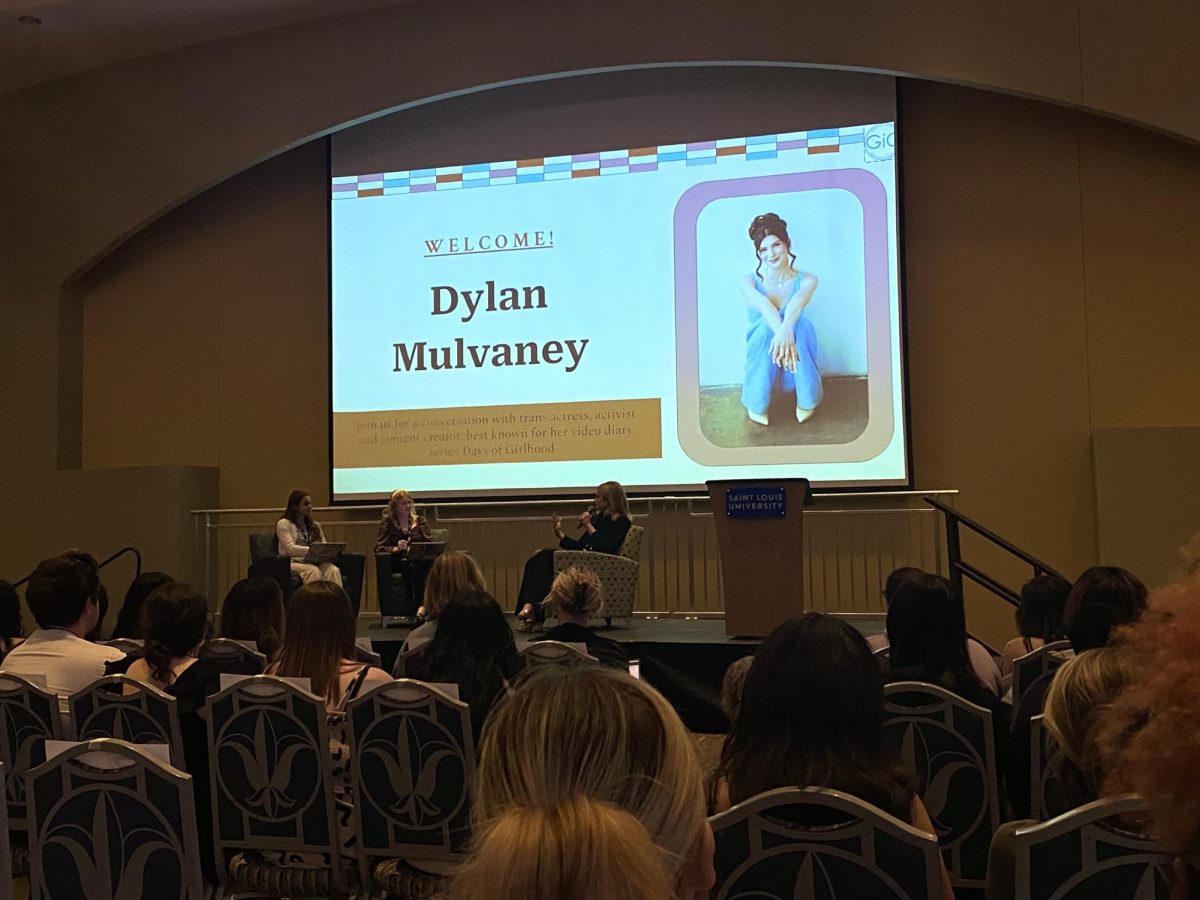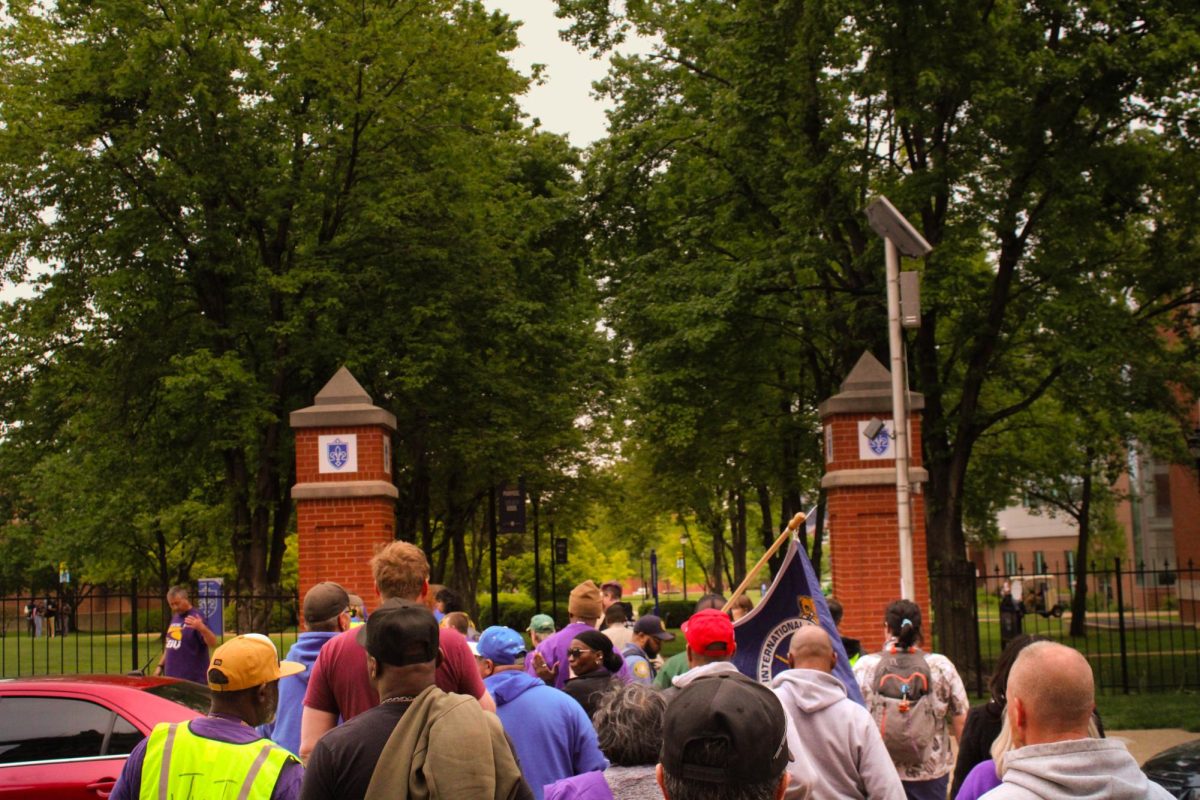Free music, hot commodity. How has the music industry been affected by the illegal distribution of music?
The law prohibits copyright infringement. Yet more than 2.6 billion files are downloaded illegally every month, according to the Recording Industry Association of America (RIAA).
Global CD sales dropped 10 percent last year, according to The New York Times. Blank CD sales outnumber the sales of recorded CDs as an increasing number of users enjoy the proliferation of free music online.
Such a trend poses a threat to the music industry at all levels, from artists who depend on royalties made from legitimate CD sales to non-musicians working in the industry. Others believe that file sharing has helped independent artists get greater coverage for their music.
Reactive measures
The music industry has created various measures to combat illegal downloading.
Music United for Strong Internet Copyright (MUSIC)–a coalition of artists, songwriters, labels and music organizations–launched a multimillion-dollar advertising campaign last year to raise awareness about the legal and financial consequences of illegal file sharing. Ninety artists and songwriters–including Madonna, Elton John and Eminem–appeared in print, radio and TV ads, stressing that downloading equals theft.
Some record labels tried sending advance releases with letters imploring reviewers not to leak the albums.
Epic Records took more drastic measures by sending out advance releases, such as Tori Amos’ Scarlet Walk and Pearl Jam’s Riot Act, glued shut on portable CD players to prevent the albums from leaking online before their official release.
Online music sites such as Pressplay and MusicNet have introduced subscription services allowing users to access music for a fee.
MusicNet is a joint venture of AOL Time Warner, RealNetworks, Bertelsmann and EMI Group. For $4.95, RealNetworks offers users 100 streams (referring to live transmission of music over the Internet without copying the file) and 100 downloads every month from its collection of 250,000 songs. However, downloaded music files cannot be transferred and burned to a CD.
Sony and Universal’s Pressplay offers unlimited streaming and downloading every month from a selection of 200,000 songs, but the files exist in formats incompatible with most CD players that prevent users from burning music to CDs. Users can enjoy the music they download as long as they keep their subscriptions active; the files vanish from the computer if they cancel.
To actually “own” a song, users must purchase portable download credits, which are available in restricted numbers. The cheapest plan is $9.95 and does not include portable downloads. The $17.95 plan offers 10 portable downloads, while the annual $179.40 plan has 120. Extra portable download credits are available in packs of five, 10 and 20. Portable downloads can be transferred and copied to a CD, and users can keep them even after their subscriptions expire.
Sounds promising, but would an average user know under what labels their favorite artists signed on? Record labels license their music to either MusicNet or Pressplay; neither have access to each other’s catalog. Limited access can make users think twice about whether subscribing is worth it.
Critics charge the music industry with being too concerned about digital rights management than actually creating new business models to work with the shifting trend to online music distribution.
SLU students speak
Spending $17 or more for an album can make any struggling college student a bit squeamish. While some may object to the use of illegal P2P programs, many others have taken advantage of this opportunity. Many think it’s illegal, while some argue the availability of software to download music makes it a legitimate activity.
A student admits to downloading music from the Internet on rare occasions, when it would be really difficult to procure the originals. He knows it’s illegal.
“I have pirated software because I am cheap, and any music I download is to save time or money–not because I thought it was my right or privilege,” he said.
The key words are “free” and “convenient.” In the realm of P2P, there’s always music 24/7, which makes it easier to download without having to physically go into a store and check whether the album or single is in stock.
A junior studying marketing admits to trying out different P2P programs until she settled on using KaZaA. “I like that I can listen to what I want without having to pay a bunch of money for only one song that I like,” she said.
Mary Morley, a sophomore, admits that her CD spending habits have changed since the availability of free music. “I have not bought a new CD since I started downloading off of KaZaA,” she said. That was two years ago.
Meghan Sullivan, a senior, doesn’t believe the downloading will ever stop completely.
“Although I am a big fan, I do think that someday it will be out of control and no one will buy CDs anymore,” she said. “I think that there are ways to deal with it, but I think it is already getting out of hand enough to the point where it will be very difficult to stop all of it.”
Sullivan stresses convenience, not the cost. “I wouldn’t necessarily use these services because they are free, but more because of the convenience,” she said. “However, I would not mind paying a small fine per song.”
Legal action
The RIAA recently turned its attention to individual users involved in illegal file-sharing.
Under federal law, individuals who commit copyright infringement can face up to five years in prison and/or pay a $250,000 fine.
Some colleges and universities have begun to adopt new technologies to combat the problem, imposing disciplinary measures for students caught downloading and sharing copyrighted files. For example, students at the University of Southern California could lose a whole year’s access to the campus network if caught.
Students at Saint Louis University could also lose Internet privileges if they are caught misusing the school’s resources.
Information Technology Services division operations manager Barbara Coleman said that while they are not blocking what students download off the Internet, they do manage the amount of bandwidth used by monitoring the types of files that go in and out of the campus network.
“[Music files] squeeze out a lot of bandwidth,” she said, which may affect the school’s Internet connectivity.






